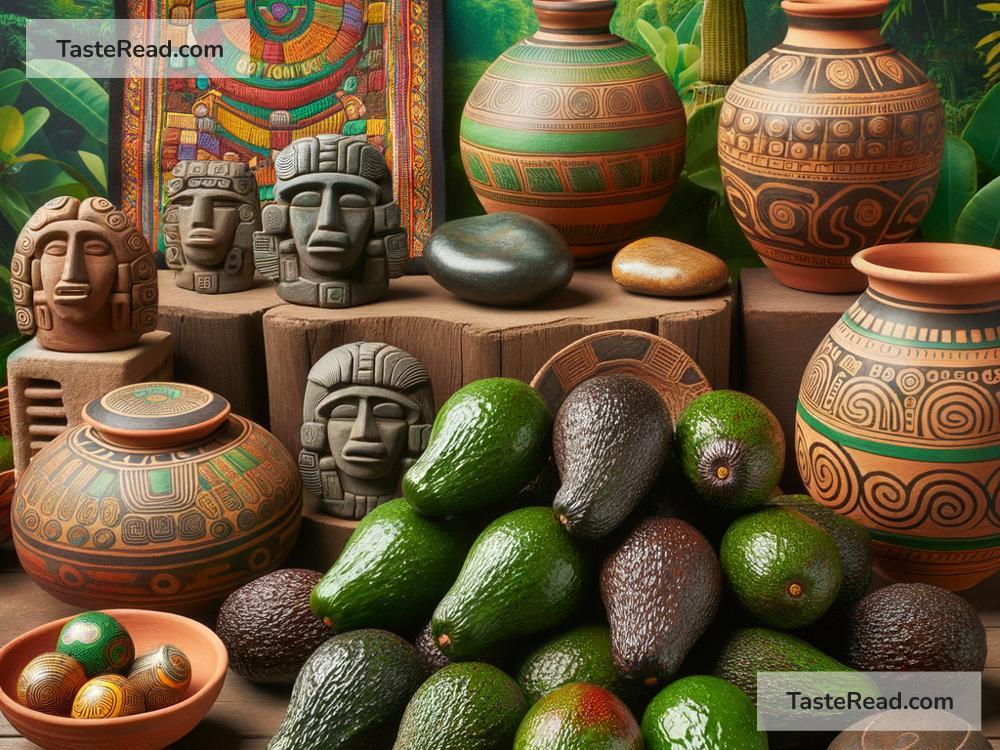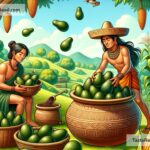The Curious Story of Avocados in Ancient Civilizations
In today’s world, avocados are the stars of trendy breakfast dishes like avocado toast, guacamole at parties, and Instagram-worthy salads. But did you know that avocados have been around for thousands of years? Their history is as fascinating as their creamy texture and delicious taste. Let’s dive into the curious story of avocados in ancient civilizations and see how this humble fruit became a global favorite.
Start of the Journey
Avocados are believed to originate from Central and South America. Their history begins around 10,000 years ago in areas where ancient people first started eating wild plants and fruits. The avocado tree is thought to have grown naturally in the forests of present-day Mexico, Guatemala, and parts of South America. Early humans discovered its buttery, nutrient-rich flesh and likely began consuming it long before agriculture even existed.
In fact, early seeds of avocado fruit have been found in archaeological sites, showing that ancient people valued and transported them over long distances. But it wasn’t just food—it had cultural significance too. Let’s take a closer look at how ancient civilizations celebrated avocados.
The Aztecs and Their “Testicle Tree”
The Aztecs, the powerful civilization that ruled over much of central Mexico between the 14th and 16th centuries, were huge fans of avocados. They called the fruit “ahuacatl,” which means “testicle” in their language, Nahuatl. The name came from both the pear-like shape of the fruit and its reputation as an aphrodisiac. The Aztecs believed avocados could increase fertility and bring strength, so it was highly valued in their society.
Avocados even had a sacred importance to the Aztec people. They were offered during rituals and featured in agricultural celebrations, as the Aztecs highly respected the earth and its bounty. The fruit became a symbol of nourishment, fertility, and abundance.
It was also practical! The Aztecs used avocado oil for skin care and medicine. Sounds like a natural ancient beauty remedy, doesn’t it?
Mayan Love for Avocados
The Mayans (another advanced civilization in ancient Mesoamerica) also loved avocados. To the Mayans, avocados were not just food—they were part of their cosmology and spiritual beliefs. Many Mayan legends speak of avocados being gifts from their gods.
The Mayans enjoyed avocados as part of their everyday diet, pairing them with maize and other staples. They were highly skilled farmers, and they likely cultivated avocado trees to make sure they had a reliable source of this nutritious fruit.
In fact, science tells us that ancient civilizations like the Mayans and Aztecs played a big role in domesticating avocados. By selecting the best trees and fruits over generations, they developed the large, creamy avocados we still enjoy today.
Avocados in South America
Further south, avocado remnants were found in the Chinchawas culture of Peru, dating back to around 3,200 BC. Avocados flourished near the Andes mountains, where ancient South American civilizations recognized their value.
In some cultures, avocados were considered a luxury food—only the elite or priests could enjoy them during special feasts. Much like the Aztecs and Mayans, South American people used avocados in their diets and found creative ways to utilize the fruit’s oil and skin in their daily lives.
How Did Avocados Travel the World?
Avocados stayed a local treasure for centuries. It wasn’t until Spanish explorers arrived in the Americas in the 16th century that avocados began their global journey. Spanish conquerors brought avocados back to Europe, introducing the fruit to countries far away. Their initial reaction was mixed. Many Europeans were unfamiliar with the texture and flavor, but they were impressed by the fruit’s appearance and nutritional value.
Over time, avocados spread to other parts of the world, including Asia and Africa. By the late 19th and early 20th centuries, farmers in California began cultivating avocados on a large scale, making them a staple in American households. Today, avocados are grown in many countries, from Mexico to Kenya, and are enjoyed in cuisines worldwide.
A Fruit for the Ages
What makes avocados so special? Ancient civilizations marveled at their health benefits, and that’s still true today. Avocados are packed with healthy fats, vitamins, and minerals. They’re good for your heart, skin, and overall health—no wonder ancient people believed they had magical qualities!
Whether they were enjoyed in Aztec rituals, eaten by Mayan farmers, or offered as royal gifts in South America, avocados have always been a prized fruit. Their journey from ancient civilizations to modern kitchens is a testament to how food connects us across cultures and generations.
Final Thoughts
The next time you slice into a ripe avocado, think about its fascinating past. This creamy green fruit has been cherished for thousands of years, and it continues to bring people together. From Aztec rituals to the global avocado craze today, the avocado carries with it a story of life, nourishment, and heritage.
So, let’s appreciate the avocado not just for its taste and health benefits, but also for the rich history it carries. It’s truly a fruit for the ages!


